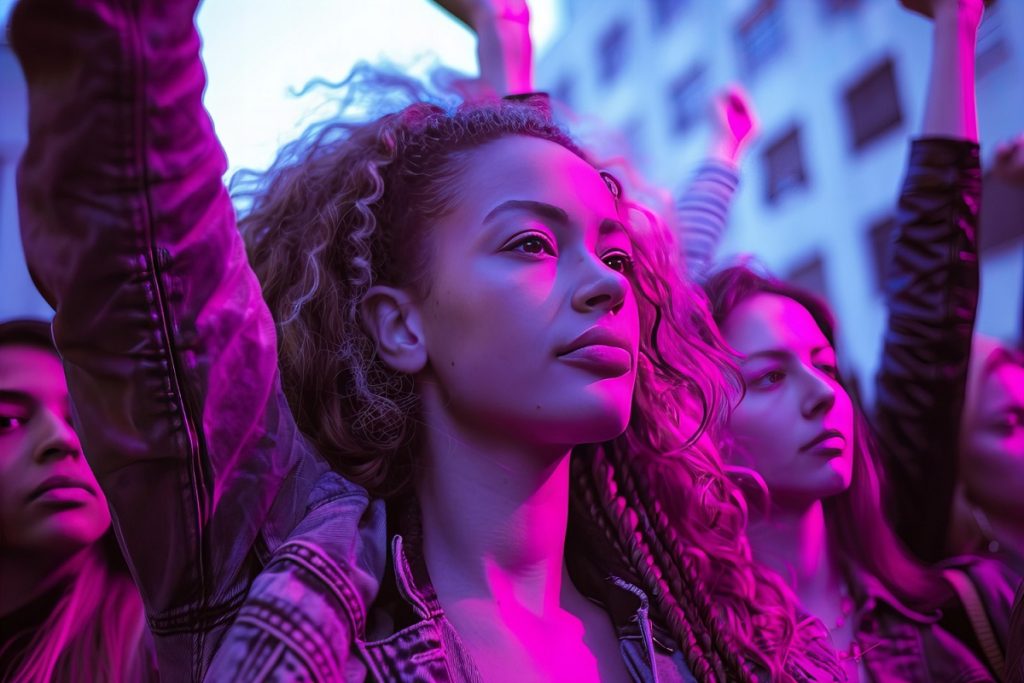Pop music isn’t just a melody to hum along to; it’s a dynamic cultural force that both shapes and reflects the contours of societal change.
This article delves into how pop music encapsulates shifting gender roles and expectations, shedding light on the symbiotic relationship between musical evolution and societal transformations in gender politics.
The soundtrack of empowerment
Historically, pop music has served as a pulsating echo of prevailing societal norms and also as a bold challenger to the status quo.
From the assertive declarations of independence by female artists in the 1980s to the more recent anthems celebrating diverse identities and challenging traditional gender roles, pop music stands at the forefront of advocating for equality and empowerment.
Rebelling against the 80s stereotype
The 1980s, for example, saw artists like Madonna and Cyndi Lauper using pop as a platform to redefine female sexuality and agency.
Their hit songs and iconic music videos, integrating dance with evocative lyrics, communicated strong messages of self-confidence and independence, inspiring generations of women to think differently about their own roles in society.
Fostering inclusivity and diversity
In recent years, pop music has boldly embraced gender diversity, with artists like Sam Smith and Janelle Monáe challenging traditional gender norms and advocating for broader acceptance of queer identities.
Their work highlights the fluidity of gender and encourages a culture of acceptance and understanding, reflecting deeper shifts in societal perspectives towards gender and sexuality.
Normalization through pop narrative
Songs and music videos incorporate narratives that broaden the understanding of gender expressions, offering a more inclusive script for individuals navigating their identity in a world of pluralistic values.
The presence of these themes in mainstream music massively contributes to the normalization and acceptance of individuals across the gender spectrum.
Psychological impact and identity formation
For many individuals, pop music is a seminal influence during their formative years, playing a key role in identity formation and self-expression.
The gender roles portrayed in music can act as a blueprint for behavior and expectations, shaping beliefs from an early age.
Empowerment through lyrical mimicry
Lyrical content that challenges gender stereotypes can empower listeners to question and redefine their own beliefs about gender roles.
This is particularly significant in the context of adolescent development, where music often provides a framework within which young people can explore and express their evolving identities.
The dual influence of media and music
While music influences societal views on gender, it is also shaped by its broader medial environment, including social media, movies, and television.
This reciprocity suggests that as general media makes strides in gender inclusivity, we can expect pop music to similarly reflect and reinforce these advancing norms.
Challenges and controversies
Despite the positive strides, the intersection of pop music and gender roles is not without its controversies. Issues such as objectification, exploitation, and unequal representation persist, reminding us that the industry mirrors broader societal challenges around gender equality and respect.
Critical reflections on the music industry
The commercial pressure to conform to traditional gender stereotypes often discourages artists from deviating from established norms, potentially stifling creativity and perpetuating outdated stereotypes.
Critiques and discussions about these practices are essential for ongoing evolution within the music industry and society at large.
Pop music, vibrant and ever-evolving, not only entertains but enlightens, reflecting and shaping the societal dance of gender politics.
As we tune into these musical expressions, we’re invited to listen not just with our ears, but with our critical minds and open hearts, pondering the profound impacts of pop culture on our collective views of gender.






